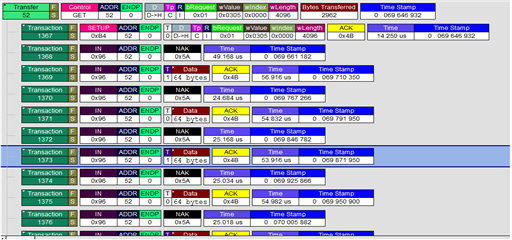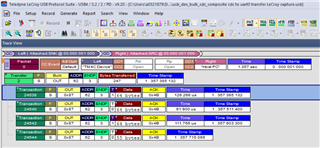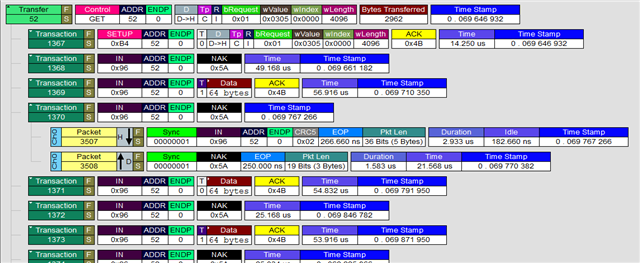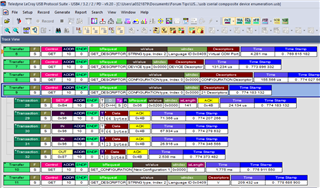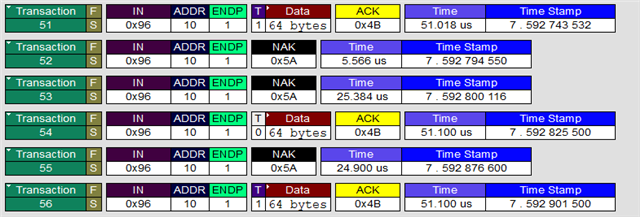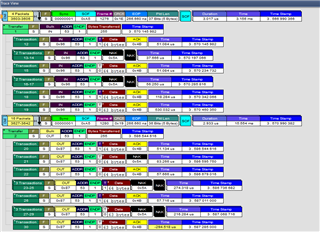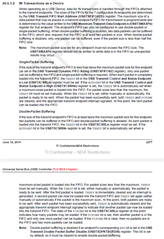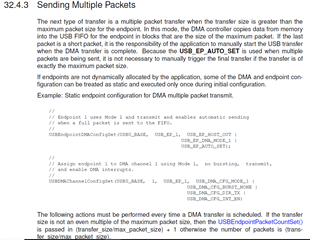Part Number: TM4C1294NCPDT
Other Parts Discussed in Thread: EK-TM4C1294XL,
Hello,
I use the USB device mode. When the Host (Windows 10) use Get_Feature to get 2962 bytes data, I see there is a NAK Transaction before every 64 bytes Transaction. The USB Protocol is 1.1 (Full Speed).
1. Does it have any way to avoid the NAK Transaction which is before the 64 bytes Transaction?
2. Can I use DMA Controller in endpoint 0 to avoid this NAK Transaction?
